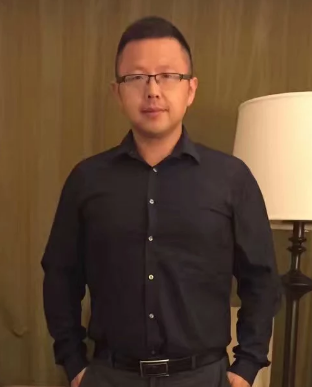Jianlan Wang, Ph.D.
Email: jianlan.wang@ttu.edu
Phone: 806-834-3858
Office: Education 365
Personal website: http://www.myweb.ttu.edu/jianlawa
Dr. Jianlan Wang is an associate professor of science education in the Department
of Teacher Education. Since the fall of 2016, he has served as an anchor for undergraduate
science education at the College of Education.

Education
- Post doc, STEM education – Physics Education, Florida International University, 2014-2016
- Ph.D., Curriculum and Instruction – Science Education, Indiana University, 2009-2014
- M.S., Physics – Condensed Matter Physics, Beijing Normal University, China, 2006-2009
- B.S., Physics – Beijing Normal University, China, 2002-2006
Areas of Expertise
- Science Education (K-8)
- Physics Education (9-College)
- Science Teacher Preparation
- Argumentation and Reasoning
- Scientific Inquiry and Inquiry Teaching
- Disciplinary Role Identity
Awarded Grants
Thacker, B. (PI), Wang, J., Zhang, Y. & Farias, I. (2023). Evidence-Based Materials for Teaching Quantum Information Science and Technology. National Science Foundation (NSF), IUSE, $299,390. NSF#2235464.
Wang J. (PI), Thacker B. & Hart. S. (2019) Measuring and improving pedagogical content knowledge of student assistants in introductory
physics classes, National Science Foundation (NSF), IUSE, $296,775. NSF#1838339
Zhang Y. (PI), Wang J., (2019) A logic programming approach to integrate computing with middle school science education, National Science Foundation, LPK12, $388,955, NSF#1901704.
Dwyer, J. (PI), White J. & Wang J. (2019) Lessons in global resources for undergraduate education students, Center for Global Communication, Texas Tech University, $40,000.
Selected Publications
Wang, J. & Wang, Y. (2023) Investigating the authenticity of “students” in microteaching for science pre-service teacher education, Research in Science & Technological Education. DOI: 10.1080/02635143.2023.2264194.
Wang, J., Wang, Y., Guo, Y., Sneed, S. Thacker, B., & Hart, S. (2023) Analyzing the patterns of questioning chains and their intervention on student learning in science teacher preparation. International Journal ofScience and Mathematics Education.DOI: 10.1007/s10763-023-10408-4.
Wang, J., Wang, Y. Wipfli, K., Thacker, B., & Hart, S. (2023) Measuring learning assistants’ use of questioning in online courses about introductory physics. Physical Review Physics Education Research. 19(1), 1-18.
Wang, J., Zhang, Y., Jones, A., Eckel, R., Hawkins, J., & Musslewhite D. (2023). Promote computational thinking of middle-school students through SPARC-integrated science instruction.Journal of Computers in Mathematics and Science Teaching, 41(3), 265-293.
Wang, J., Li, Q., & Luo, Y. (2020) Physics identity of Chinese students before and after Gaokao: the effect of high-stake testing, Research in Science Education. DOI: 10.1007/s11165-020-09978-y.
Wang, J. & Wang, Y. (2020). Compare synchronous and asynchronous online instruction for science teacher preparation, Journal of Science Teacher Education,32(3), 265-285, DOI: 10.1080/1046560X.2020.1817652.
Wang, J. (2020). Scrutinizing the positions of students and teacher engaged in argumentation in a high school physics classroom. International Journal of Science Education. 42(1), 25-49. DOI: 10.1080/09500693.2019.1700315.
Wang, J. (2020).Compare inquiry-based pedagogical instruction with direct instruction for pre-service science teacher education. International Journal of Science and Mathematics Education,18(6), 1063-1083, DOI:10.1007/s10763-019-10010-7.
Wang, J., Sneed, S., & Wang, Y. (2019). Validating a 3E rubric assessing pre-service science teachers’ practical knowledge of Inquiry Teaching.Eurasia Journal of Mathematics, Science and Technology Education,16(2), em1814. https://doi.org/10.29333/ejmste/112547.
Wang, J. & Sneed S. (2019). Exploring the design of scaffolding pedagogical instruction for elementary preservice teacher education. Journal of Science Teacher Education. 30(5), 483-506. DOI: 10.1080/1046560X.2019.1583035.
Wang, J., & Hazari, Z. (2018). Promoting high school students’ physics identity through explicit and implicit recognition.Physical Review Physics Education Research,14(2), 020111, 1-12. DOI: 10.1103/PhysRevPhysEducRes.14.020111.
Wang, J., & Buck, G. A. (2018). Exploring the use of debate to enhance elementary teacher candidates' argumentation skills.New Waves-Educational Research & Development,21(1), 30-47.
Wang, J., Hazari, Z., Cass, A.P., & Lock, R.M. (2018). Episodic memories and the longitudinal impact of high school physics on female students’ physics identity. International Journal of Science education, 40(13), 1543-1566. DOI: 10.1080/09500693.2018.1486522.
Wang, J., & Buck, G. (2016). Understanding a high school physics teacher’s pedagogical content knowledge of argumentation.Journal of Science Teacher Education,27(5), 577-604. DOI 10.1007/s10972-016-9476-1.
Wang, J., & Buck G. (2014). The relationship between Chinese students’ subject matter knowledge and argumentation skills. International Journal of Science Education, 37(2), 340-366. DOI: 10.1080/09500693.2014.987713.
College of Education
-
Address
Texas Tech University, College of Education, 3002 18th Street Lubbock, TX 79409 -
Phone
(806) 742-2377 -
Email
educ.webmaster@ttu.edu
